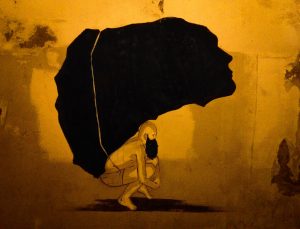
 From my perspective, Albert Camus is a truly extraordinary writer. While the concepts he addresses are profound and thought-provoking, his prose remains simple, clear and accessible. It would not be an exaggeration to say that studying Camus’ work during my university years was a transformational experience. His novels and essays have influenced my perspective on life perhaps more than any other author.
From my perspective, Albert Camus is a truly extraordinary writer. While the concepts he addresses are profound and thought-provoking, his prose remains simple, clear and accessible. It would not be an exaggeration to say that studying Camus’ work during my university years was a transformational experience. His novels and essays have influenced my perspective on life perhaps more than any other author.
Though I had been most intrigued previously by Camus’ novels, my attention that summer centered on his philosophical essays, and most directly on his unique analysis of Sisyphus.
As I mentioned above, immediately prior to leaving Paris to take up my post at the winery in Bordeaux, I had reread The Myth of Sisyphus. Published in French in 1942 as Le Mythe de Sisyphe, this work is a compilation of Camus’ reflections on the fundamental issues of human existence: life, death, work, meaning, and suicide. In the final pages, the author turns his attention specifically to the well-known myth from ancient Greece, and he gives his personal vision of it.
In essence, the Nobel Prize laureate’s analysis of Sisyphus turns traditional views upside down. Whereas the classic accounts would lead us to believe that Sisyphus was among the most miserable of mortals—assigned by the gods to the worst of all punishments—Camus advocates for a radically different, and far more positive, perspective.
From the author’s viewpoint, it is our quests and endeavors—not their outcomes or end products—that give meaning to our lives. In Camus’ world view, the push to achieve is enough to gratify any individual. As he expresses it: “The struggle itself toward the heights is enough to fill a man’s heart. One must imagine Sisyphus happy.”
To make sense of his unconventional interpretation of Sisyphus, one must understand Camus’ personal definition of The Absurd. Using this term, he asserts that life can seem purposeless and meaningless, in a chaotic and irrational universe. Rather than approach this state of affairs with pessimism or resignation, though, Camus proposes that individuals should embrace the absurd nature of human existence, all the while continuing to explore life and search for meaning.
Whether it is our fate because the gods have decreed it, or because it is the work we are tasked with in our everyday lives, for Camus the central issue is the same. We do not always control our destiny, but we can always control our attitude and our approach to life. In the face of any difficult trial or circumstance, we are free to frame our reality, to find our own ways of giving meaning to any undertaking.
For Camus, understanding the irrational and absurd nature of our world offers us a form of liberation. Our job is to give meaning to our lives and to our work, rather than surrender to The Absurd.
In the case of Sisyphus, condemned for all eternity to a hopeless struggle, there is clearly no hope of a favorable outcome. On the other hand, at every moment he is free to approach his task with a positive mindset, to enjoy his journey, and to find meaning in his quest.
As such, Camus portrays the myth’s protagonist as a man with the freedom to define his own world, one where he can take pride and satisfaction in performing a clear and challenging task. He may even find reasons to do his daily work with joy, to relish being outside on his mountain in the bright sunlight. In addition, during each descent from the heights, temporarily liberated from his labor with the rock, he is able to discover moments of reflection, contentment and gratification.
In Camus’ mind, thus, we should see Sisyphus as a happy man. The protagonist’s refusal to surrender to despair—and his ability to find enjoyment in his daily pursuit of the summit—this would be his best form of revenge against the gods who sought to punish him.
In coming posts, I will discuss some far-reaching connections I was able to make between my philosophical musings—on Camus, Sisyphus and others—and our daily activities on the winery floor. Remarkably, some of the lessons from that summer have influenced my worldview and perspectives to this day.
Image: Flickr user Tim Snell
